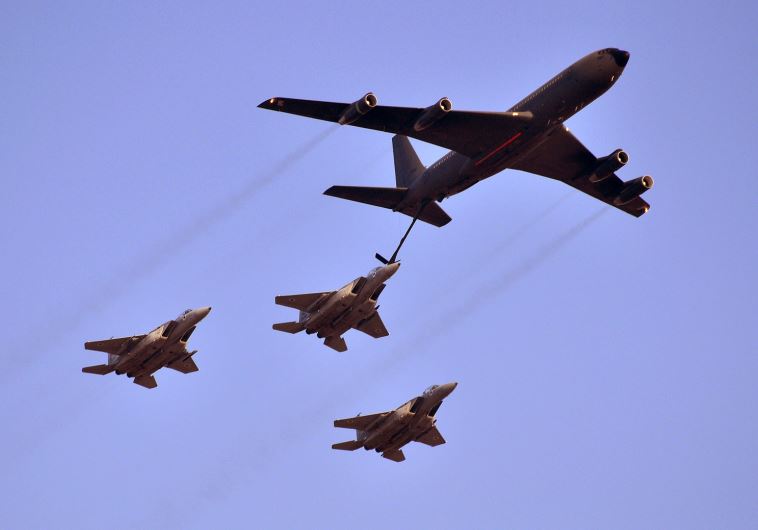Boeing selects Elbit anti-jamming system for an F-15 operator
It provides full jamming immunity for multiple satellite channels and handles multiple interfering signals operating on concurrent frequencies.
 A Boeing 707 aerially refuels three F-15 Eagles(photo credit: YONATAN ZALK / IAF)Updated:
A Boeing 707 aerially refuels three F-15 Eagles(photo credit: YONATAN ZALK / IAF)Updated: